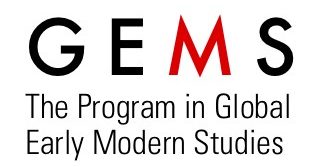Due Oct. 15 | ESA Conference 2016: The Way of All Flesh
The committee for the coming year’s ESA conference is now welcoming proposals. Please distribute the attached CFP widely, and consider submitting your own work.
The Way of All Flesh
English Student Association Conference
City University of New York, the Graduate Center
April 7-8
“Where are we to put the limit between the body and the world, since the world is flesh?” (Merleau-Ponty, The Visible and the Invisible, 138)
What possibilities arise when we discuss flesh in the absence of a body? If the term body denotes a set of codes that determines and delimits flesh, then flesh might, in this framework, be conceptualized as that which the body can never fully contain. In Merleau-Ponty’s configuration, the flesh of the world is the mutually constitutive thickness between perceiving subject and perceived object. On a more intimate scale, how might discrete bodies — human and animal, animate and inanimate — enmesh? If the ideal body contains and encloses, how does flesh dissolve bodies through shared sensations, sufferings, pleasures? What kinds of knowledge do experiences of the flesh produce?
Uncovering alternative histories of flesh might compel more nuanced theorizations. Though flesh typically refers to the interior meat of human and animal bodies, we invite papers that reconsider this term, in ways that include but are not limited to the following:
- Ecologies of flesh, relations between flesh, bodies, and environments
- Affective encounters through and between flesh, the emotional/affective expressivity of flesh
- Flesh, sexuality, and identity
- Racializing logics of embodied difference/sameness, histories of taxonomizing, and commodifications of flesh
- Dissection and anatomy, revivification of flesh, pathologization of flesh, illness, pregnancy, tumors, and cell growth
- Sensing flesh, synesthesia, touching/feeling flesh, the pleasure of flesh
- Historical and theoretical distinctions among flesh, meat, and edible bodies
- Flesh in devotional practices from prayer to mortification, the memento mori, transubstantiation and the Eucharist
- Transitioning and transforming flesh, shaping flesh, shrinking and expanding flesh
- Possession of flesh, the flesh trade, appropriating flesh
- Violations of the flesh, flesh objects, torture, marking/exalting the flesh
- Flesh — from animal skin to plant matter — in book production
- Discarded, forgotten, and wasted flesh, flesh after life and the afterlife of flesh
- Nonconforming and extraordinary flesh, normative and ableist discourses of flesh
- Technologies of the flesh, prostheses as flesh
- The flesh of the text, writing (on) the flesh, the erotics of the text, textual surfaces
Please send proposals of 250 words or less to thewayofallfleshconference@gmail.com by October 15, 2015. fleshtheconference.wordpress.com



